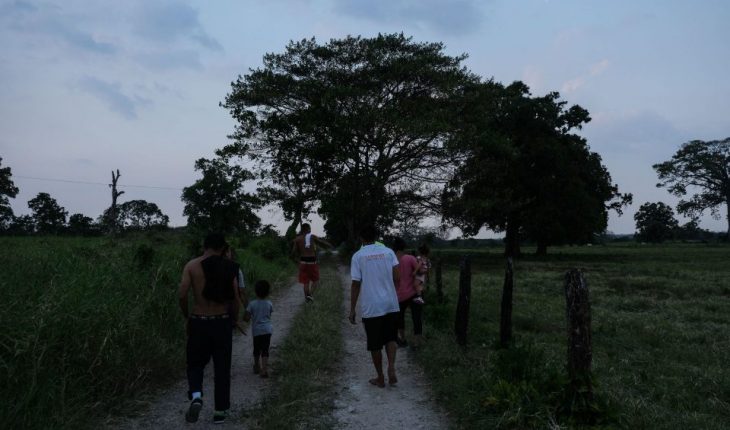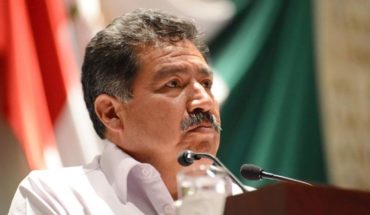“There is concern about the migrant population, with their vulnerabilities and sufferings, that can be put behind the scenes regarding the pandemic situation.” Nino Caradonna, Field Coordinator for the Doctors Without Borders (MSF) migrant project, summarizes the institution’s unrest about the situation of migrants on the U.S. border.
“We fear that the pandemic will be used as a tool to strengthen migration policies,” he said, at a press conference at which MSF expressed concern about the northern border situation.
Read: We have to pay “coyote” to return to our country: Migrants stranded in Mexico by COVID
There are no figures on how many migrants and asylum seekers are currently waiting in border towns. MSF detected a decrease in flow although it warns that the inflow of people may be increased in the future due to poor living conditions that persist in countries such as Guatemala, Honduras and El Salvador.
The context on the northern border was not easy. From the beginning of 2019, Mexico began receiving Central Americans who had applied for asylum in the United States but had to wait months for their appointment with the judge. Last year alone it was about 60 grand. The program was suspended with the start of the pandemic, so thousands have been trapped in cities such as Tijuana, Baja California; Reynosa or Matamoros, Tamaulipas.
In the latter municipality, between 200 and 500 migrants are in a camp on the banks of Rio Bravo. Some have been sleeping in tents for over a year. In addition, since March the border is closed and the Border Patrol returns every Mexican and Central American that crosses irregularly.
“Deportations from the US continue even though it is the country with the highest number of cases,” Caradonna said.
MSF has detected an increase in psychological stress due to the inability to continue its path and difficulties in hosting. “The hostels are closed and this causes stress,” he said.
The pandemic caused the paradox that by the time more aid is needed, organizations were forced to close operations.
“One of the consequences is the closure of some of the shelters that host migrants or the inability to enter new migrants,” explained Valerio Granello, coordinator of Mexico’s northern border project. This has led migrants to be forced to rent on their own in municipalities such as Reynosa, Tamaulipas, where they are also hit by severe insecurity.
“Now with the closure of the borders the period of stay in border towns is extended”; Explained Granello.
There are no statistics on how many migrants have been able to contract COVID-19. Although, as Caradonna recalled, their conditions of precariousness, overcrowding and difficulty in accessing water leave them more exposed and with more difficult prevention measures.
“It’s not easy to have data from a population that’s criminalized, hides and tries not to be very visible as they want to go unnoticed,” Caradonna said.
In June, the first case was detected at the Matamoros camp, which ignited all alerts. Four positives were eventually detected, while another group of people is isolated.
One of the options that MSF is working with other organizations is the possibility of reopening shelters under health control, so that migrants can access safely. Isolation and hygiene protocols are being studied to ensure that contagion can be prevented.
One of the great challenges for this population is that the border is closed and there is no prospect of reopening. “The migrant population tells us that there are no dates for this to resume. This leads to problems for people with family who are in limbo situation,” said the MSF manager.
The great concern: that this situation will be timed, especially given that the flow may increase in the coming months.
What we do in Animal Político requires professional journalists, teamwork, dialogue with readers and something very important: independence. You can help us keep going. Be part of the team.
Subscribe to Animal Politics, receive benefits and support free journalism #YoSoyAnimal.
translated from Spanish: “The pandemic should not be used to strengthen migration policies”: SPS
August 7, 2020 |





